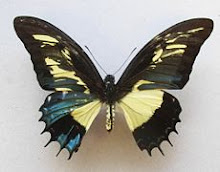This summer, I took an intro to ethics class. The sole paper I wrote for that class was on assisted suicide. Since I had been suicidal from depression for many months in the prior year and since the belief that living probably isn't really worth it hadn't gone away (and is still with me in several forms), the arguments against suicide challenged me and opened my eyes.
The death of a college professor who wrote often about suicide, didn't seem depressed, but took zir own life at a certain age--"rational suicide" to avoid the toll of terminal illness--was attributed by some to "rigid thinking," the inability to see or take seriously alternative solutions to a problem or interpretations of reality.
Lately I've found myself metaphorically and literally blinking in confusion at life as my own patterns of "rigid thinking" temporarily subside. I would like to truly be open to new ideas.
I never saw myself as someone who was not able to think outside my preconceived notions before, but in retrospect I have found it very difficult to accept uncertainty or contradictory information or lines of thinking. In high school, I struggled with my own misogyny, and later I struggled to find a new identity after realizing that conservatism wasn't the white-knight ideology I had thought it was.
During my first year of college, I agonized endlessly over my choice to call my gender identity "androgyne"--even though I adopted that label almost as soon as I first considered transgendered people, assimilating new information and new conceptual structures felt threatening, like it invalidated me as a person to realize that other people might disagree with the basis for my self-labeling or choose to see gender in a different way.
After that year, I strangely dropped the label. I still call myself genderqueer occasionally, but I wanted to be seen as a cisgendered person. I didn't change my grooming habits to become gender normative, but I didn't and don't talk much about gender identity, and I also refer to myself in thought and word--honestly--as my biological gender. Not long ago I felt disoriented at the shape of my own body for a week or so, but that's rare.
I still think that, if I have a gender identity, it's definitely not plain cis, but how many standard deviations does that put me away from the average person? Less than one? More than two? I have no way of telling, and that's okay with me. There are cultural conceptual problems with gender, and I have no desire to stake out territory and argue about what's real, what's innate, what's imagined, what's culturally instilled, what's changeable.
Instead, I accept people's concepts of their own experience of gender as valid, and I reject generalizations about "men" or "women" or other gender-related categories. I'm not very vocal about it, but that's probably more related to self-confidence than anything else.
Rigid thinking relates complexly to self-confidence. On the one hand, it can lead to pigheaded brashness. On the other, awareness of that flaw gives me reason to doubt myself, and the rigid thinking itself makes it hard to learn and grow.
This largely explains my current impulse to write more. I think better when I write. I'm more likely to realize when my ideas hold no water, or to follow a promising line of thought further along. It helps me connect with my own past thoughts and experiences instead of floating in vague ideas about myself that don't turn out to be true upon further inspection.
Subscribe to:
Post Comments (Atom)




No comments:
Post a Comment